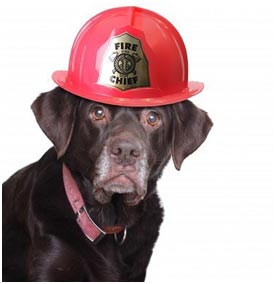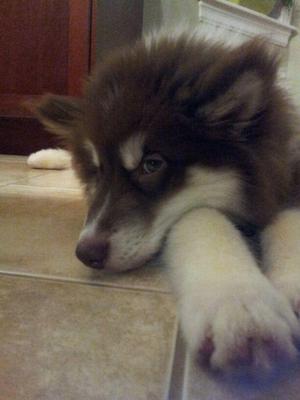This article is primarily directed at the reduction of anxiety for dogs however, there is a similar approach for your cat as well! Please look for my cat anxietal blog entry elsewhere in our website! Most of the references in this blog pertain to veterinary services in Halifax, Dartmouth, Lower Sackville and the Halifax regional municipality in general.
Typically, anxieties worsen over time, so you need to have some plan in place two months ahead of fireworks season or, the season for thunderstorms. Also, before you book an appointment your veterinarian, it is a great idea to contact the obedience or behavior trainer that you took your puppy to for his or her basic life skills training. If you did not do this with your puppy-I can’t stress enough the bonuses for everyone in your family from taking these courses! While attending behavior training classes may seem somewhat of a “chore”, these classes will remarkably improves the bond with your pet. Many of our clients who attend puppy skills training while the puppy is still 6 to 8 months of age. However, about 30% of our clients will go when the dog is somewhat older and are amazed at the results. Specifically for this blog, a refresher course focused on methods to improve your dogs “self-confidence” can go a long way to reducing anxietal behaviors. This training basically helps your dog understand what’s accepted behavior from them, what’s expected of them in general, and of course what they can expect from you.
Some basic considerations for lessening anxietal behaviour(s) during thunderstorms or if you can anticipate fireworks celebrations or other anxiety-causing situations for your dog;
1 – Consider creating a safe & secure environment for your dog might be an area that is his or her “favorite” area to lie down at any time. It may be a good idea to try and pre-train your pet to go and settle on a mat, bed, couch or similar location as this strategy can help to increase calming behaviours.
2- However, if your dog finds a hiding place as a storm is coming or during a storm, don’t acknowledge this behaviour either way-that means not discouraging or encouraging the behaviour.
3- Playing music may assist in reducing his anxiety however, I think it’s more likely that having a circulating fan blowing on the area this is their’ favorite’ may also assist in adding “white noise” and lessen your dog’s anxiety, by masking some of the more subtle storm sounds.
4- Encouragement or praise may actually not be helpful as your pet could interpret them as reward for the behaviour.
5- I like to hear of clients playing with their pet during the prelude to any storm or stressful situation. Engaging in games or even practicing some basic obedience exercises can actually distract many pets, especially playing with familiar toys.
‘ThunderShirt’ Use
These are close-fitting ‘coats’ that are adjustable with Velcro fittings but, I would recommend that you take your pet to either ‘PetSmart’, ‘Pet Value’ or Pets Unlimited to have it fitted correctly. They are slightly adjustable as well to allow you to fit it slightly tighter or looser as the need arises.
Pheromone Use
‘Adaptil’, a pheromone product that is thought to lessen anxieties overall as the pheromone mimics those pheromones given off by nursing mother dogs. I’m trying this with my own dog currently, and it comes in 3 basic forms; a spray, a collar, & a plug-in diffuser. I’m currently using the spray and the diffuser at home.
Initially you need to buy a diffuser for the “Adaptil” start and, then it’s about $30 a month thereafter; while the spray is $ 58 but it is challenging to tell you how long it would last, as would depend on how frequently you used it however, they recommend 8 individual “pumps” per treatment session. Typically the caller is used for puppies adjusting to their new home, and lasts about a month. One of my technicians is found this very helpful for her puppy!
We use the Adaptil diffuser in the clinic and each one covers 600 to 800 ft.². We also use the feline version “Feliway” for our cats as we are also a “Certified Cat Friendly” clinic by the American Association of feline practitioners – as cats can have anxieties too!
Additional Treatment Modalities & Medications
There is a calming food from the company “Medi Cal” in Canada – “Calm” is its name. In our practice, we have had some profoundly great effects using only this diet. Our only client feedback that is negative is because the size of the bag is quite small. This diet combines 3 natural additives that are known to reduce anxiety. These are Tryptophan, Nicotinamide, and a milk protein hydrolyzate – See more at: http://www.royalcanin.ca/index.php/Veterinary-Products/Canine-Nutrition/Veterinary-Therapeutic-Formulas/Calm-Dry.
I have had some clients obtain the above three ingredients separately from health food stores but at this time, I’m unaware if this is available on our part of the country.
During thunderstorm/firework season drug therapy can be helpful as an addition to the above ideas. No medications are approved for use specifically for storm reactions, but two are approved for the treatment of anxiety-related conditions; Clomicalm® and Reconcile®. Please ask your veterinarian to look into the cost for these medications for your pet as the dose is weight related. Either of these medications take 2 to 4 weeks for full effect.
Depending on your pet’s response to one of these medications, you may not need any additional therapy or, can add in other medications such as ‘acepromazine’ (sedative/tranquilizer) or ‘alprazolam’ which is a family member of the valium group however, it has very little sedative effects and no addictive qualities. The really great news about these two medications in combination is that, once we see the desired effect, and it is consistent for the first 3 months of storm season, we can begin to reduce the dose by 25% (one quarter), every 3 weeks to the lowest effective dose, while watching for a return of any anxiety indicators such as pacing, whining, loss of appetite.
There could be the consideration of the use of Clonidine with Trazodone for anxiety-based behaviour disorders in dogs. However this combination needs to be discussed at length with your veterinarian and preferably should be started about a month or six weeks before any ‘season’ of fireworks are anxietal issues.
If your pet begins to worsen during the dose reduction period, you can always increase it to the last effective dose as well. Again, any dose changes need to be discussed with your veterinarian at length so that both of you know what is going on!
Generally your veterinarian should be able to counsel you by phone or e-mail once you have attended the initial consultation with your pet. And don’t be surprised if it takes some time for some tailoring of the doses of medication combined with the Thundershirt or pheromone use, or for other behavior techniques to have the desired effects.
Submitted by Dr. Jeff Goodall, Veterinarian/owner of Sunnyview Animal Care, and you’re Halifax Regional Municipality dog, cat, and exotic pet veterinarian. We are based in Bedford, Nova Scotia




